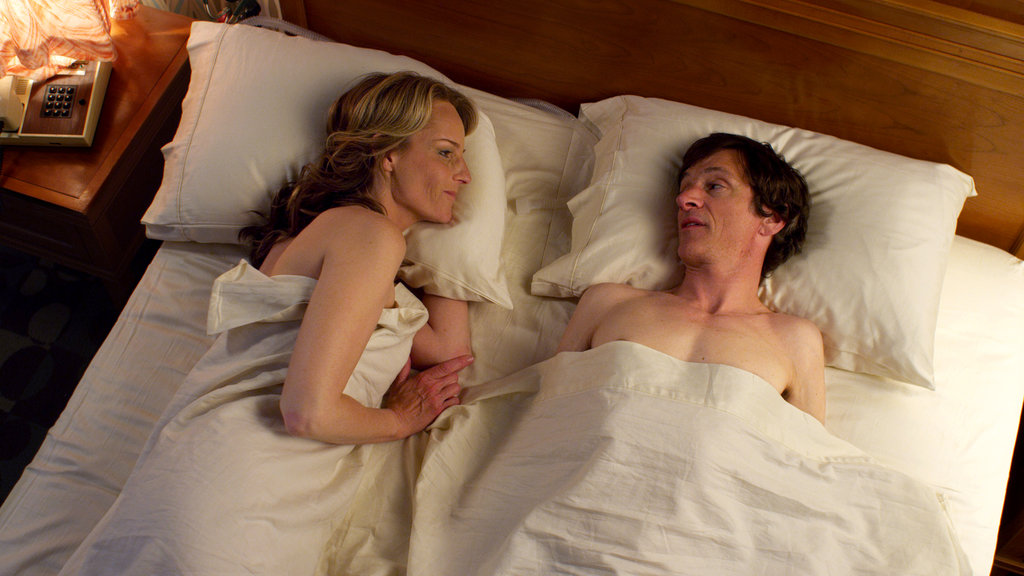Differentiating between lust and love can be a challenge for someone who doesn’t get the opportunity for either. It is that question that drives Mark O’Brien (John Hawkes); complicating matters is the fact that he is stuck to 3-4 hours outside of his iron long due to polio. After seeking the advice from his pastor (William H. Macy), Mark sees a sex surrogate, Cheryl (Helen Hunt) who guides him through his first time. The Sessions doesn’t have a complicated plot, but it makes great use of its leads to craft an honest, funny, and poignant story about lust and love.
The complications from sex and love are discussed ad nauseam in The Sessions. This is not a bad thing as there are some really complicated situations and feelings to get over. From O’Brien’s perspective, is sex a process or the be all end all? Also, just cause you physically make love with a person, does that mean that you automatically love the person? Does premarital sex for a devout Catholic mean eternal damnation? Is true love physical connection, mental connection, or some combination of both? For Cheryl, how do you separate physical love from true love? Is it possible to focus just on a physical relationship? The Sessions big emotional payoffs result from characters confronting these moral minefields using their heads, hearts, and reproductive organs.
The joy of watching The Sessions lies in the honest humor. While the self-deprecation humor is persistent throughout the proceedings, The Sessions does not mock its protagonist; it makes sure you’re laughing with him while he is laughing at himself. By keeping the mood light the Sessions makes the touchy subject matter much easier to talk about as well. The smart script draws comparisons to similar stories like Rain Man by dealing with its protagonist honestly and cleverly.
John Hawkes is not known by mainstream audiences, but he continues to add to his art house resume (he was also in Martha Marcy May Marlene and Winter’s Bone). Here, all of his work is dedicated to his face and arched body since he can’t move his muscles. Hawkes imbues O’Brien with an equal mix of bluntness and levity, making him a very likable character (new for him). The subtle facial texture and vocal choices make The Sessions a showcase of Hawkes’s acting depth and ability. Every bit Hawkes’s equal is Helen Hunt, who bares everything. Obviously it is courageous to leave your body that open to scrutiny, but equally impressive is the quiet emotion emanating from her eyes and face. She has many scenes where she talks to a tape recorder with her mouth talking like a doctor, but her face looking like a star-crossed lover. This dichotomy keeps the character’s intentions in doubt until the very end despite the straight forward plot line, a testament to Hunt’s acting. William Macy does a good job with his bits of comedic relief and contemporary missionary work. The rest of the cast is the weak part of The Sessions. Moon Bloodgood is unnecessary and underserved by the story and the rest of the cast fails to land more than a generic impression.
That being said, the strength of the Sessions lies with the central two characters and their complicated adult relationship. The frankness and levity of the complicated issues gives the Sessions its charm and hook. The biggest takeaway for myself is that honesty with sexuality is ok. Hopefully when the chance arises to have sex again, I can be as honest and funny as Mark O’Brien.

